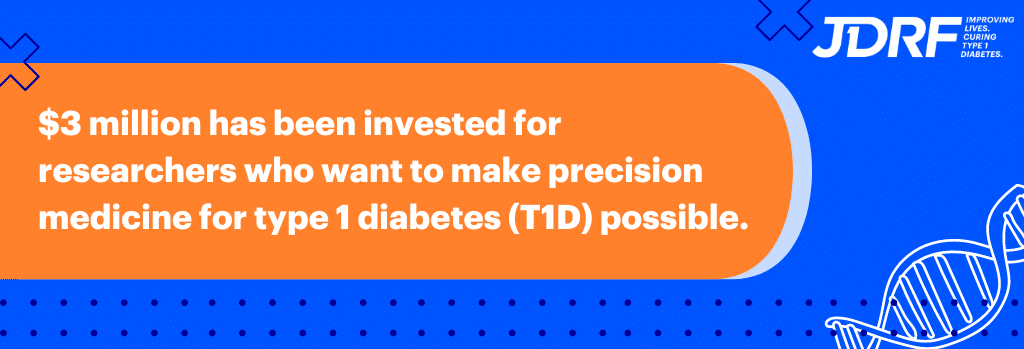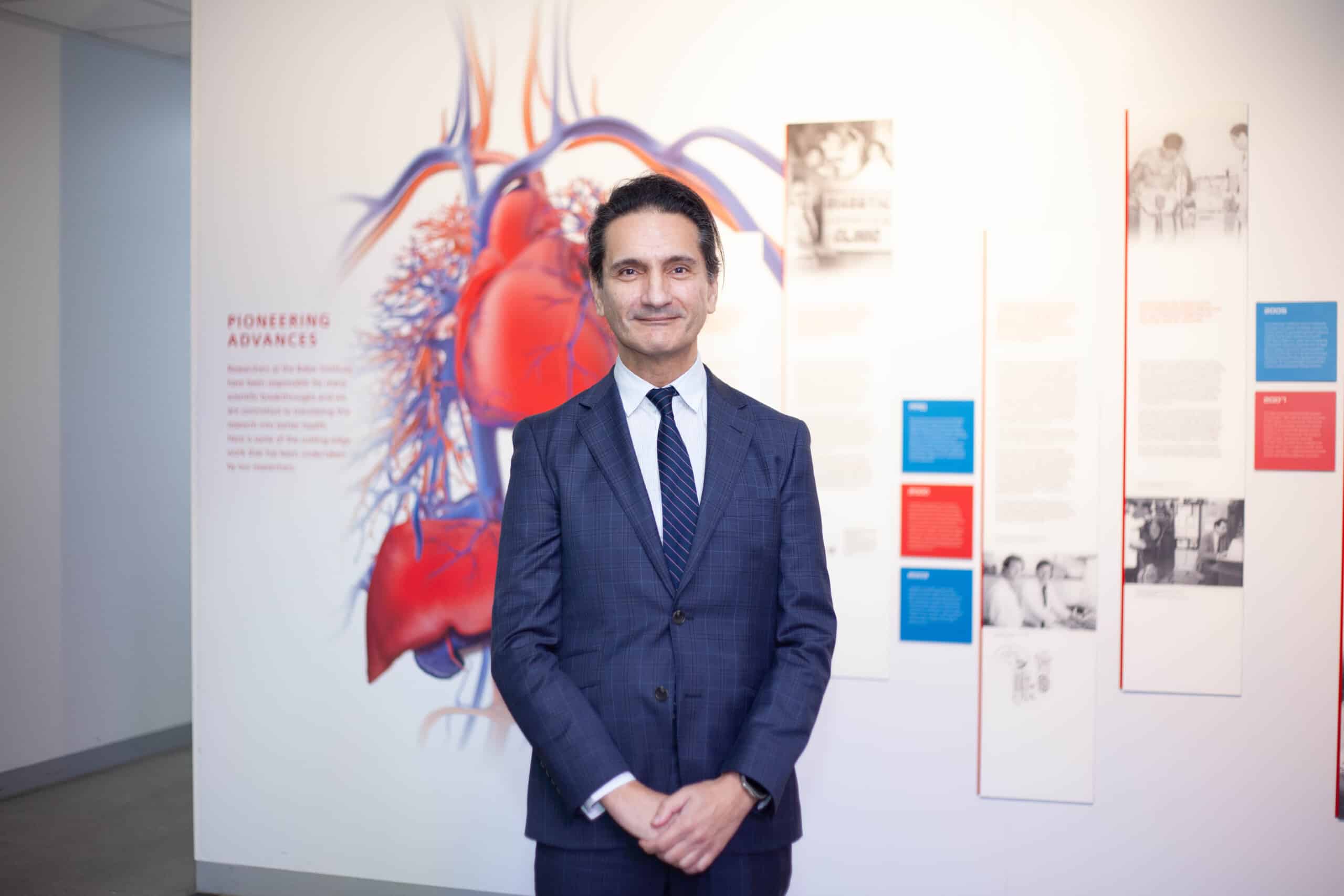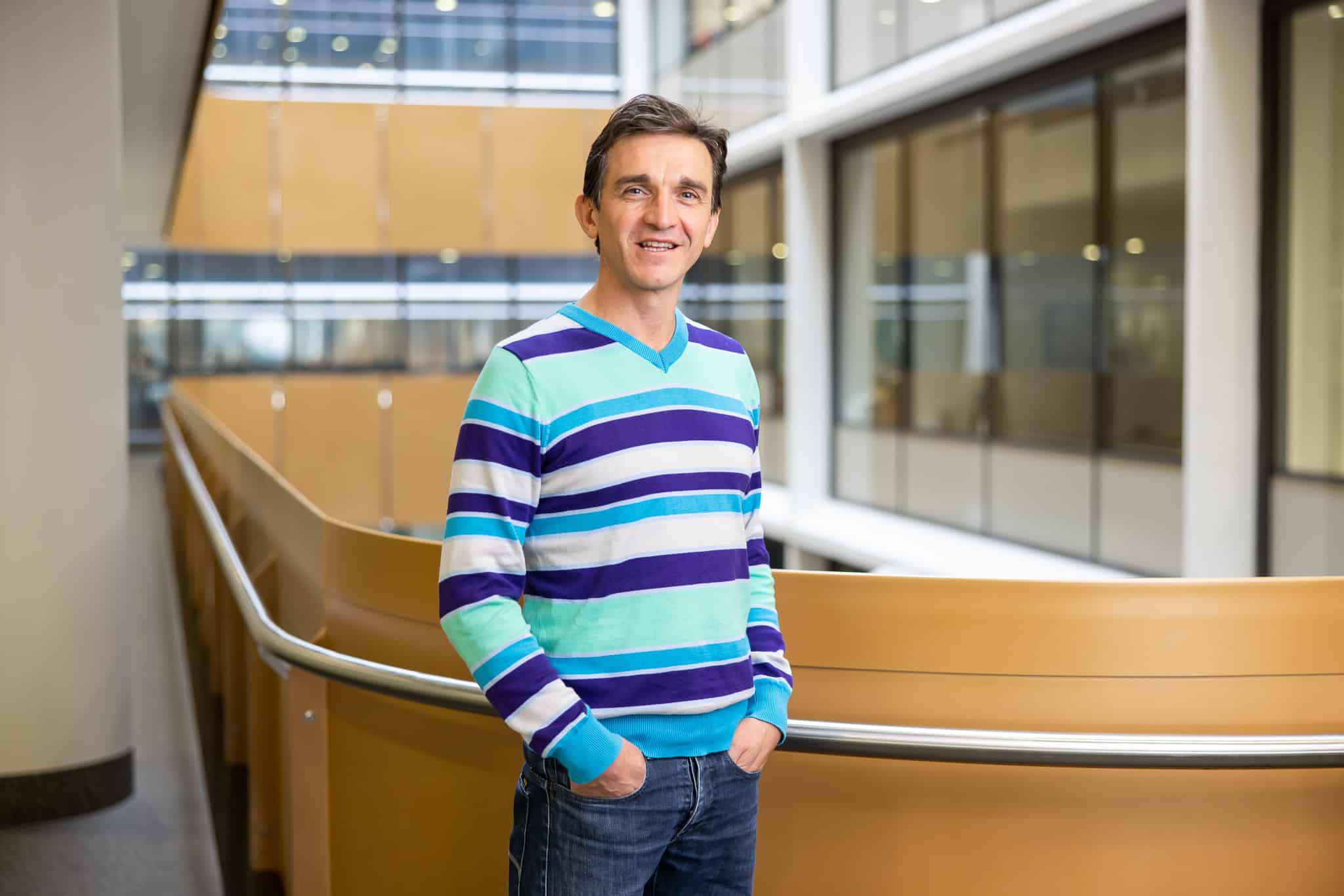$3M invested for researchers working towards precision medicine for type 1 diabetes

JDRF Australia and JDRF International have announced over $3m AUD in funding for researchers aiming to improve health outcomes for the type 1 diabetes (T1D) community by making precision medicine possible.
Precision medicine has delivered great benefits in other disease areas, such as cancer, and involves treatment that is tailored to a person’s genes, environment, and lifestyle.
This would be a move away from the ‘one size fits all’ approach of glucose monitoring and insulin therapy that is currently utilised in T1D, and move towards a future where the right therapy is given to the right person at the right time.
What do we need for precision medicine to be possible?
It is thought that T1D is triggered by an interplay between genetics and environmental exposures, like viral infections, gut bacteria, and potential environmental toxins. Unlocking more information about this process will lay the foundation for precision medicine.
This requires investment in an area of science known as genomics, the study of our total DNA, and the changes in our genes and cells under different environmental conditions or pressures.
Research that supports precision medicine is a priority for JDRF’s as it is needed to revolutionise how we can prevent, diagnose, and treat type 1 diabetes. Clinical management of the condition has looked much the same since the discovery of insulin 100 years ago, but we want to move towards a future with medical care tailored to each person living with, or at risk of, type 1 diabetes. It is time for the type 1 diabetes community to benefit from this type of care.
– Dr Dorota Pawlak, JDRF Australia Chief Scientific Officer
The newly announced funding will support five genomics research projects from leading Australian T1D scientists.
The researchers being funded

Professor Helen Thomas, St Vincent’s Institute of Medical Research
Professor Thomas will investigate at the genetic level who will most benefit from baricitinib, a drug which has recently been shown to delay the progression of T1D in a JDRF-funded, world-first clinical trial. Knowing who will best respond to this treatment could give clinicians an option to personalise treatment for their patients in future.

Professor Sam El-Osta, Baker Heart & Diabetes Institute
Professor El-Osta is seeking to understand why some people with T1D develop long-term complications, while other do not, through investigating gene-environment interactions called epigenetics. His team will focus on vulnerable populations, such as Indigenous Australians, who have higher rates of long-term complications.

Dr Megan Penno, University of Adelaide
Accessing samples collected through the Environmental Determinants of Islet Autoimmunity (ENDIA) Study, Dr Penno hopes to discover new lipid and protein markers which may be associated with islet autoimmunity (a hallmark of the early stages of T1D), to better predict who is most likely to progress to clinical T1D.

Professor Fabio Luciani, University of New South Wales
Professor Luciani will be using a state-of-the-art technique called ‘single cell multi-omics’ to characterise the cells of the immune system which are responsible for immune attack in T1D and coeliac disease (another autoimmune condition). This will add to the knowledge base of what drives T1D and coeliac disease, supporting the long-term goal of developing tailored preventative therapies.

Professor Simon Barry, University of Adelaide
Using cutting-edge ‘omics’ methods on samples from the ENDIA Study, Professor Barry aims to better understand how immune tolerance is lost during the development of T1D. In the future, this type of information could help find therapies which may reverse the attack of insulin producing beta cells in T1D.
These research projects are the first step towards bringing T1D precision medicine to Australia within the next decade.
To learn more about precision medicine for T1D and the work already completed by JDRF, click here.
The Type 1 Diabetes Clinical Research Network
JDRF Australia’s support of the new genomics projects has been made possible through its Type 1 Diabetes Clinical Research Network (CRN), a Government-funded initiative that has been making T1D research breakthroughs possible for over a decade.
To read more about the CRN, click here.
*Dr Megan Penno and Professor Simon Barry have been funded by JDRF International, and the remaining projects are supported by JDRF Australia.




